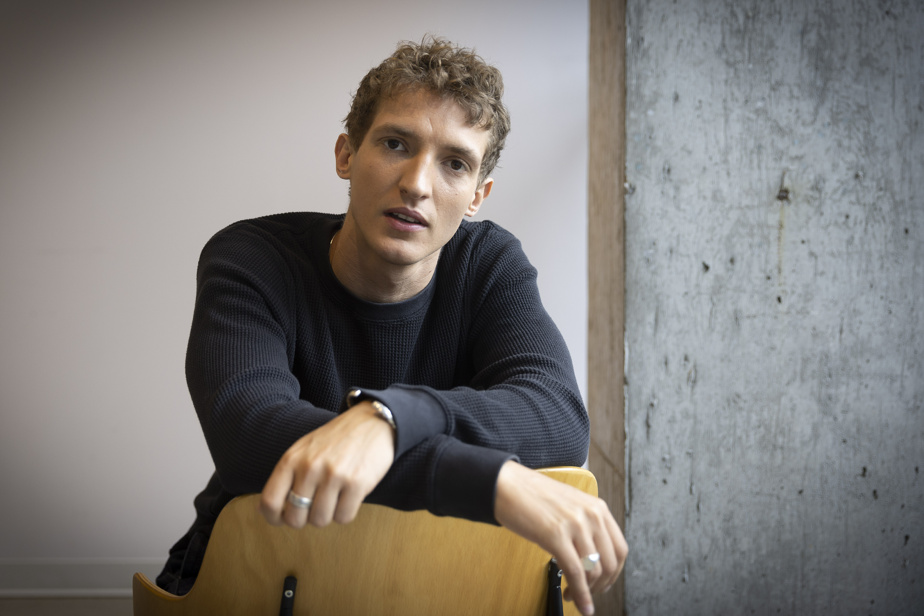It happened in several stages. I released my second album in full confinement, my tour was canceled and to keep this record alive a little, I decided to translate one of my songs, Forget My Blues, which became C’est tout, it’s nothing. It was my first song in French. I’ve wanted to do it for a long time, but I didn’t think I could do it. It was also the beginning of my collaboration with [director] Marc-André Gilbert. I then wanted to make a record in French with him.
It’s getting easier, because I know myself better and better, but it’s still much more difficult than in English for me to make the words sound good. I learned that what worked best for me were simple words. […] Often, my first ideas, I make yogurt, I say anything and they are often words in English. Then, I will use the sounds that I liked in English and find words that sound a little similar in French.
I went to film in Greece for two different projects. I shot the film Music, by director Angela Schanelec. It was my first trip, for two months, during which several songs were born there. I returned to Montreal and we worked on these drafts. A theme emerged because I already knew that I was going back to Greece for six months [for the filming of the series Greek Salad, by Cédric Klapisch], that I was going to be far from my girlfriend and the people I love . I had felt the energy of Greece, I couldn’t wait to go back, but I was a little dreading what it meant for my relationship, being away for so long. I was very moved by that and it was felt in the compositions.
It helped me a lot to calm my anxieties and my questions. I don’t claim to have found any answers, but my songs were a way of expressing all of that. It felt good. That’s the main theme, the main songs are on that.
Yes quite. It makes me feel good to have both, because I feel like, in either one, I lose the passion side, when it becomes the only thing you do and it just becomes a work. When I’m in Greece filming and I have a free hour when I get home, I pick up my guitar and make music. At that moment, she takes back the place she had when I was a teenager. It allows me to return to myself.
We settled on the guitar, which we wanted to be very dry. I gave myself the gift of an old Martin from 1949 which we used on the album without putting [any effect]. With my voice, we wanted it to be very warm. We wanted to feel Greece, to feel the fact that this album is a photo of this period of my life. We did a huge amount of work with the harmonies. We wanted to use the voices almost like violins, to be like a choir. All that really formed the identity of the album.
He pushed me a lot. If I’m lazy, and I feel like we’ve done the right thing on a song, but he feels like something’s missing, he’ll push me to my limits and that really led to the project further. I was also afraid of co-writing, I refused it, telling myself that I had done 100% of the writing for the first two albums. But in fact, it really made me go further, because it pushed me to go further within myself.
She managed to find the right wording for a sentence about The Ocean of Lovers. His presence on the album is not an official collaboration. But we live together and she was in the studio sometimes singing. I didn’t want Charlotte Cardin to sing on my record, I wanted my girlfriend to sing on my record. We also hear from friends of mine from Greece. I wanted these people in my life to sing on the album.
This song happened in a special way. I wrote it even before the second album, it’s much older, that’s why it’s in English. Marc-André showed me a bit of bossa nova tune he was working on and it made me think of this song. It had the same slightly insular side as the other pieces.
I’m excited and curious to see how this will be received. It’s no longer in my hands, I can only cross my fingers, I hope it reaches people. But with the release of the singles, I already have the impression that, perhaps because of the French, the reception is already better than the experience I had with the first albums.
